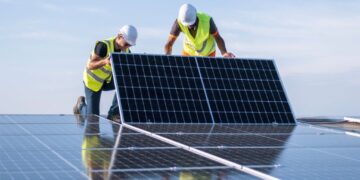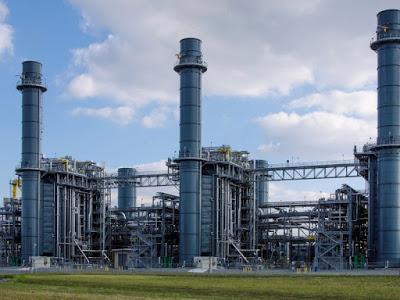…Senate queries TCN’s N738m expenditure on abandoned goods
Following the federal government’s approval of its power purchase agreement (PPA) with the Nigeria Bulk Electricity Trading Plc (NBET), promoters of the 550 megawatts (MW) capacity Ondo gas-fired Independent Power Project (IPP), have said the plant is projected to supply power to the national grid from the fourth quarter (Q4) of 2020.
Speaking to journalists on Sunday in Abuja, the Managing Director of Kingline Development (KLD), which is the project promoter, Mr. Akinnola Fola, explained that this was possible considering that a financial closure on the project was expected in Q4 2018, and construction planned to last 24 months.
Fola, stated that at the moment, KLD was confident of securing $150 million equity finance for the project, which according to him, represented 27 per cent of its cost, and that the balance of $400 million representing 73 per cent of the cost would be sourced from lenders, including the African Development Bank (AfDB), Overseas Private Investment Corporation (OPIC) of the United States, amongst others.
He said: “When you have the power purchase agreement signed it gives some kind of credibility to would-be investors and lenders, because it is so important to the power business, and without it, you have not started the power business.
“So, signing a PPA indicates that finally, the project is ready to go and that investors, lenders are now ready to support the project.”
He further stated that: “We still need to have some transaction agreements with lenders and financiers, then we are looking at fourth quarter 2018 to achieve the financial closure after that we have 24 months to do the construction, so, tentatively we are looking at first quarter 2020 before we start what we call commercial operation deal.”
He said KLD had gone past the development stages of the project, which according to him was the most challenging phase and was confident of closing out the financial processes as scheduled.
He also noted that the risks involved in the sector were universal and as such, KLD was confident its co-investors would not be deterred by the seeming financial uncertainty in Nigeria’s power market.
According to him: “There is no uncertainty here, if you talk about the issue of how you recover your money, there are mechanisms in place to protect investors. One of these is the Partial Risk Guarantee (PRG), there is also the political risk insurance, there is the Put-Call Option Agreement (PCOA), and these are what international lenders will need to put money in the business.”
“It is not only in Nigeria that those risks exist, all we need is to allow the environment to be conducive for foreign investors to come in.
“There is a stage we call the development stage in the power business, which is the most challenging because when you embark on power development with your money, institutional investors will not come in at the beginning, but we individual investors are doing it and taking the risks, we have passed that stage now.”
Meanwhile, the Senate Committee on Power, Steel Development and Metallurgy has queried the decision of the Transmission Company of Nigeria (TCN) to expend N738 million to clear unnamed goods abandoned at the ports by its contractors.
At the budget defence session last Thursday, the committee heard that some of the goods had been abandoned for over a decade.
The Managing Director of the company, Mr. Usman Mohammed, said while the contractors ought to have received waivers, they abandoned the goods when they were not granted the waivers.
The TCN, therefore, has to clear such goods, he disclosed and added that the company spent N738 million from a N2 billion provision.
Mohammed, speaking on the 2017 budget, said the TCN had received only N5.9 billion out of N41.9 billion.
“We are hopeful that some releases will still be made,” he said and added that the company had been given a limit of N33 billion for the 2018 budget estimates.
The Chairman of the committee, Senator Enyinnaya Abaribe, said the development where goods are abandoned at the ports, frustrates effort to improve the power sector.
“Government is part of the Independent Power Projects. Goods for the NIPP projects arrive in the country ports, the government insists on heavy payment of duty. Government ends up taxing itself thereby increasing the cost of the projects and its execution. The goods are abandoned for years, some 10 years,” he said.























